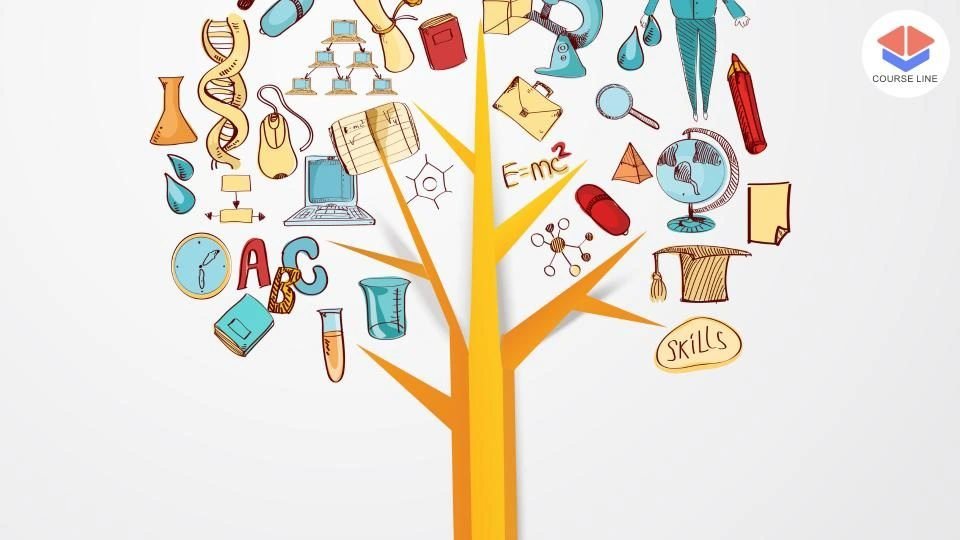Course Features
Price
Study Method
Online | Self-paced
Course Format
Reading Material - PDF, article
Duration
6 hours, 5 minutes
Qualification
No formal qualification
Certificate
At completion
Additional info
Coming soon
- Share
Overview
The Dyslexia Level 3 Advanced Diploma is a comprehensive programme designed to enhance your understanding of dyslexia from a scientific, educational, and social perspective. It begins with a foundational exploration of what dyslexia is, highlighting its defining characteristics and addressing common myths and misconceptions. Learners gain a historical overview of how dyslexia has been perceived and studied, building context for the current understanding of the condition.
The course delves into the neurobiological foundations of dyslexia, examining how brain structure and function differ in dyslexic individuals. Recent neuroimaging research and developments in neuroscience are explored, offering learners insight into how these findings influence assessment and intervention practices. Through a multidisciplinary approach, students are introduced to diagnostic methods, screening tools, and ethical considerations in the identification of dyslexia.
A key focus of the course is understanding the unique cognitive profile of dyslexic learners. Students examine the strengths and challenges faced by individuals with dyslexia, as well as the impact on learning outcomes, academic performance, and day-to-day functioning. Real-life case studies and personal narratives provide meaningful perspectives and foster empathy for the lived experiences of dyslexic individuals.
Instructional strategies are thoroughly covered, with an emphasis on evidence-based techniques such as differentiated instruction, multisensory learning, and the use of assistive technology. Learners are taught how to adapt teaching practices to meet diverse learning needs and promote academic success. The course also addresses the social and emotional aspects of dyslexia, including the importance of building self-esteem, overcoming stigma, and fostering inclusive, supportive learning environments.
Modules dedicated to family and community engagement help learners understand the crucial role of caregivers, educators, and wider networks in supporting dyslexic individuals. Learners also gain awareness of relevant legal frameworks, rights and entitlements, and best practices in educational policy implementation. Practical insights into the transition to higher education and employment provide guidance on accessing support services, workplace accommodations, and effective disclosure practices.
Finally, the course explores current trends in dyslexia research and innovation, including new intervention strategies and opportunities for continued professional development. By the end of the programme, learners will have a well-rounded, research-informed understanding of dyslexia and be prepared to advocate for and support individuals with dyslexia across multiple settings.
Who is this course for?
The Dyslexia Level 3 Advanced Diploma is a comprehensive programme designed to enhance your understanding of dyslexia from a scientific, educational, and social perspective. It begins with a foundational exploration of what dyslexia is, highlighting its defining characteristics and addressing common myths and misconceptions. Learners gain a historical overview of how dyslexia has been perceived and studied, building context for the current understanding of the condition.
The course delves into the neurobiological foundations of dyslexia, examining how brain structure and function differ in dyslexic individuals. Recent neuroimaging research and developments in neuroscience are explored, offering learners insight into how these findings influence assessment and intervention practices. Through a multidisciplinary approach, students are introduced to diagnostic methods, screening tools, and ethical considerations in the identification of dyslexia.
A key focus of the course is understanding the unique cognitive profile of dyslexic learners. Students examine the strengths and challenges faced by individuals with dyslexia, as well as the impact on learning outcomes, academic performance, and day-to-day functioning. Real-life case studies and personal narratives provide meaningful perspectives and foster empathy for the lived experiences of dyslexic individuals.
Instructional strategies are thoroughly covered, with an emphasis on evidence-based techniques such as differentiated instruction, multisensory learning, and the use of assistive technology. Learners are taught how to adapt teaching practices to meet diverse learning needs and promote academic success. The course also addresses the social and emotional aspects of dyslexia, including the importance of building self-esteem, overcoming stigma, and fostering inclusive, supportive learning environments.
Modules dedicated to family and community engagement help learners understand the crucial role of caregivers, educators, and wider networks in supporting dyslexic individuals. Learners also gain awareness of relevant legal frameworks, rights and entitlements, and best practices in educational policy implementation. Practical insights into the transition to higher education and employment provide guidance on accessing support services, workplace accommodations, and effective disclosure practices.
Finally, the course explores current trends in dyslexia research and innovation, including new intervention strategies and opportunities for continued professional development. By the end of the programme, learners will have a well-rounded, research-informed understanding of dyslexia and be prepared to advocate for and support individuals with dyslexia across multiple settings.
Requirements
The Dyslexia Level 3 Advanced Diploma is a comprehensive programme designed to enhance your understanding of dyslexia from a scientific, educational, and social perspective. It begins with a foundational exploration of what dyslexia is, highlighting its defining characteristics and addressing common myths and misconceptions. Learners gain a historical overview of how dyslexia has been perceived and studied, building context for the current understanding of the condition.
The course delves into the neurobiological foundations of dyslexia, examining how brain structure and function differ in dyslexic individuals. Recent neuroimaging research and developments in neuroscience are explored, offering learners insight into how these findings influence assessment and intervention practices. Through a multidisciplinary approach, students are introduced to diagnostic methods, screening tools, and ethical considerations in the identification of dyslexia.
A key focus of the course is understanding the unique cognitive profile of dyslexic learners. Students examine the strengths and challenges faced by individuals with dyslexia, as well as the impact on learning outcomes, academic performance, and day-to-day functioning. Real-life case studies and personal narratives provide meaningful perspectives and foster empathy for the lived experiences of dyslexic individuals.
Instructional strategies are thoroughly covered, with an emphasis on evidence-based techniques such as differentiated instruction, multisensory learning, and the use of assistive technology. Learners are taught how to adapt teaching practices to meet diverse learning needs and promote academic success. The course also addresses the social and emotional aspects of dyslexia, including the importance of building self-esteem, overcoming stigma, and fostering inclusive, supportive learning environments.
Modules dedicated to family and community engagement help learners understand the crucial role of caregivers, educators, and wider networks in supporting dyslexic individuals. Learners also gain awareness of relevant legal frameworks, rights and entitlements, and best practices in educational policy implementation. Practical insights into the transition to higher education and employment provide guidance on accessing support services, workplace accommodations, and effective disclosure practices.
Finally, the course explores current trends in dyslexia research and innovation, including new intervention strategies and opportunities for continued professional development. By the end of the programme, learners will have a well-rounded, research-informed understanding of dyslexia and be prepared to advocate for and support individuals with dyslexia across multiple settings.
Career path
The Dyslexia Level 3 Advanced Diploma is a comprehensive programme designed to enhance your understanding of dyslexia from a scientific, educational, and social perspective. It begins with a foundational exploration of what dyslexia is, highlighting its defining characteristics and addressing common myths and misconceptions. Learners gain a historical overview of how dyslexia has been perceived and studied, building context for the current understanding of the condition.
The course delves into the neurobiological foundations of dyslexia, examining how brain structure and function differ in dyslexic individuals. Recent neuroimaging research and developments in neuroscience are explored, offering learners insight into how these findings influence assessment and intervention practices. Through a multidisciplinary approach, students are introduced to diagnostic methods, screening tools, and ethical considerations in the identification of dyslexia.
A key focus of the course is understanding the unique cognitive profile of dyslexic learners. Students examine the strengths and challenges faced by individuals with dyslexia, as well as the impact on learning outcomes, academic performance, and day-to-day functioning. Real-life case studies and personal narratives provide meaningful perspectives and foster empathy for the lived experiences of dyslexic individuals.
Instructional strategies are thoroughly covered, with an emphasis on evidence-based techniques such as differentiated instruction, multisensory learning, and the use of assistive technology. Learners are taught how to adapt teaching practices to meet diverse learning needs and promote academic success. The course also addresses the social and emotional aspects of dyslexia, including the importance of building self-esteem, overcoming stigma, and fostering inclusive, supportive learning environments.
Modules dedicated to family and community engagement help learners understand the crucial role of caregivers, educators, and wider networks in supporting dyslexic individuals. Learners also gain awareness of relevant legal frameworks, rights and entitlements, and best practices in educational policy implementation. Practical insights into the transition to higher education and employment provide guidance on accessing support services, workplace accommodations, and effective disclosure practices.
Finally, the course explores current trends in dyslexia research and innovation, including new intervention strategies and opportunities for continued professional development. By the end of the programme, learners will have a well-rounded, research-informed understanding of dyslexia and be prepared to advocate for and support individuals with dyslexia across multiple settings.
-
- Definition and characteristics of dyslexia 00:10:00
- Historical perspectives and research findings 00:10:00
- Myths and misconceptions surrounding dyslexia 00:10:00
-
- Brain anatomy and function in dyslexic individuals 00:10:00
- Neurological differences associated with dyslexia 00:10:00
- Recent advancements in neuroimaging research 00:10:00
- Multidisciplinary approaches to dyslexia assessment 00:10:00
- Standardized tests and screening tools 00:10:00
- Ethical considerations in assessment practices 00:10:00
- Differentiated instruction for dyslexic students 00:10:00
- Multisensory teaching approaches 00:10:00
- Assistive technology and accommodations 00:10:00
- Role of parents and caregivers in supporting dyslexic children 00:10:00
- Collaborating with schools and educational professionals 00:10:00
- Advocacy and awareness-raising initiatives 00:10:00
- Transition planning for students with dyslexia 00:10:00
- Accessing support services in higher education settings 00:10:00
- Workplace accommodations and disclosure 00:10:00
- Exam of Dyslexia Level 3 Advanced Diploma 00:50:00

No Reviews found for this course.
Is this certificate recognized?
Yes, our premium certificate and transcript are widely recognized and accepted by embassies worldwide, particularly by the UK embassy. This adds credibility to your qualification and enhances its value for professional and academic purposes.
I am a beginner. Is this course suitable for me?
Yes, this course is designed for learners of all levels, including beginners. The content is structured to provide step-by-step guidance, ensuring that even those with no prior experience can follow along and gain valuable knowledge.
I am a professional. Is this course suitable for me?
Yes, professionals will also benefit from this course. It covers advanced concepts, practical applications, and industry insights that can help enhance existing skills and knowledge. Whether you are looking to refine your expertise or expand your qualifications, this course provides valuable learning.
Does this course have an expiry date?
No, you have lifetime access to the course. Once enrolled, you can revisit the materials at any time as long as the course remains available. Additionally, we regularly update our content to ensure it stays relevant and up to date.
How do I claim my free certificate?
I trust you’re in good health. Your free certificate can be located in the Achievement section. The option to purchase a CPD certificate is available but entirely optional, and you may choose to skip it. Please be aware that it’s crucial to click the “Complete” button to ensure the certificate is generated, as this process is entirely automated.
Does this course have assessments and assignments?
Yes, the course includes both assessments and assignments. Your final marks will be determined by a combination of 20% from assignments and 80% from assessments. These evaluations are designed to test your understanding and ensure you have grasped the key concepts effectively.
Is this course accredited?
We are a recognized course provider with CPD, UKRLP, and AOHT membership. The logos of these accreditation bodies will be featured on your premium certificate and transcript, ensuring credibility and professional recognition.
Will I receive a certificate upon completion?
Yes, you will receive a free digital certificate automatically once you complete the course. If you would like a premium CPD-accredited certificate, either in digital or physical format, you can upgrade for a small fee.
Course Features
Price
Study Method
Online | Self-paced
Course Format
Reading Material - PDF, article
Duration
6 hours, 5 minutes
Qualification
No formal qualification
Certificate
At completion
Additional info
Coming soon
- Share
Driver CPC Made Easy: Your Complete Guide to Compliance
Course Line240£490.00Original price was: £490.00.£14.99Current price is: £14.99.IELTS Writing Task 2: Essay Structures, Ideas & Band 9 Techniques
Course Line237£490.00Original price was: £490.00.£14.99Current price is: £14.99.Sociology Essentials
Course Line237£490.00Original price was: £490.00.£14.99Current price is: £14.99.





